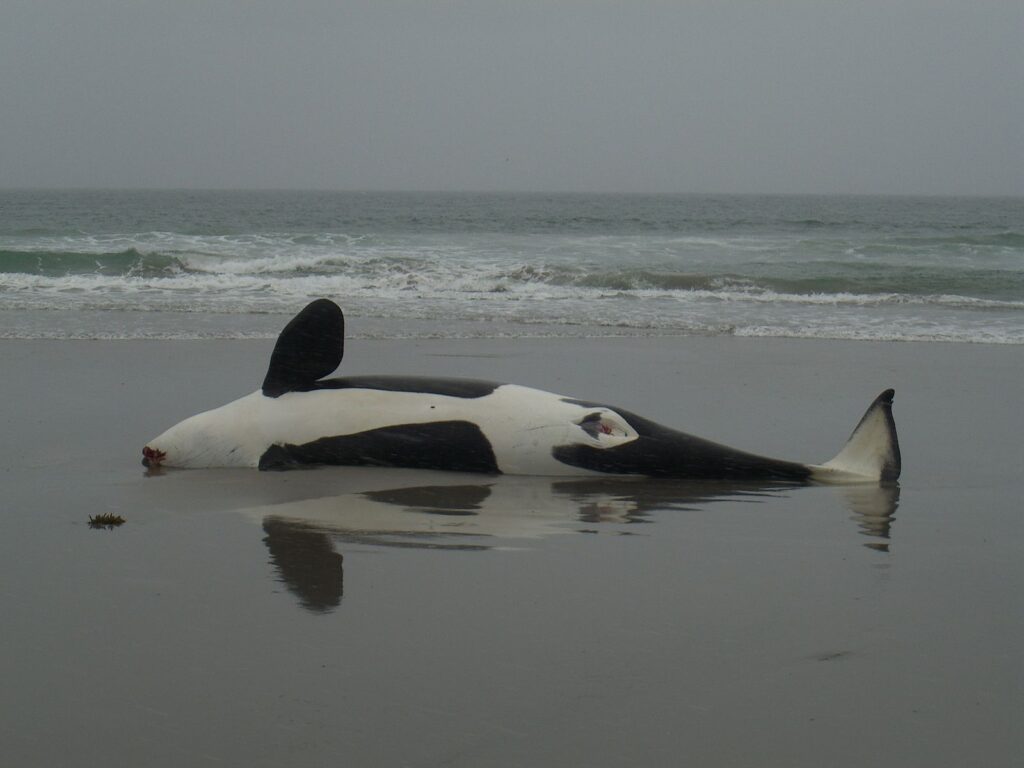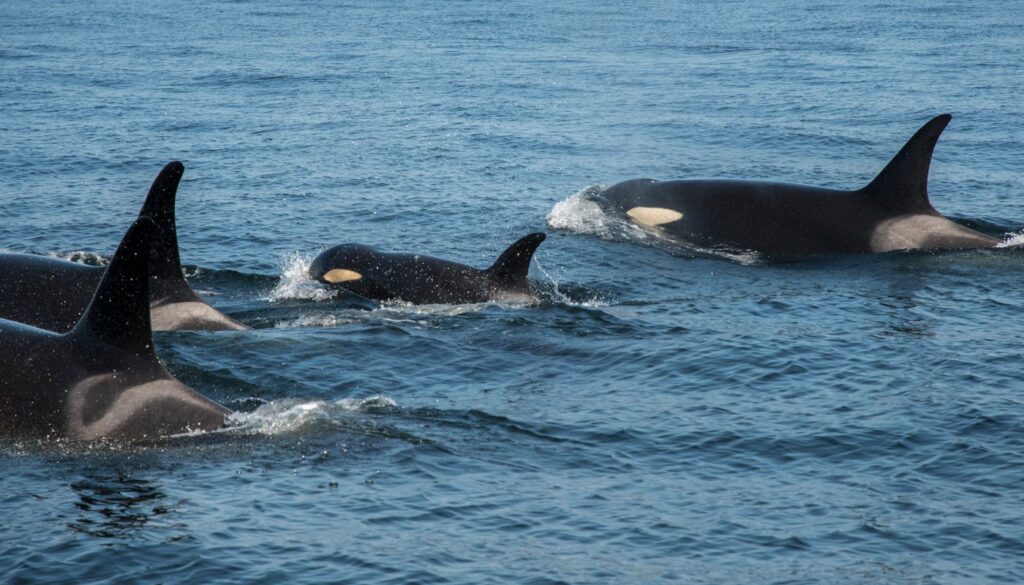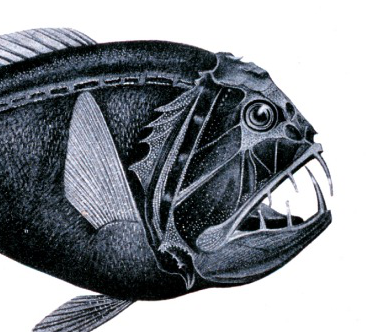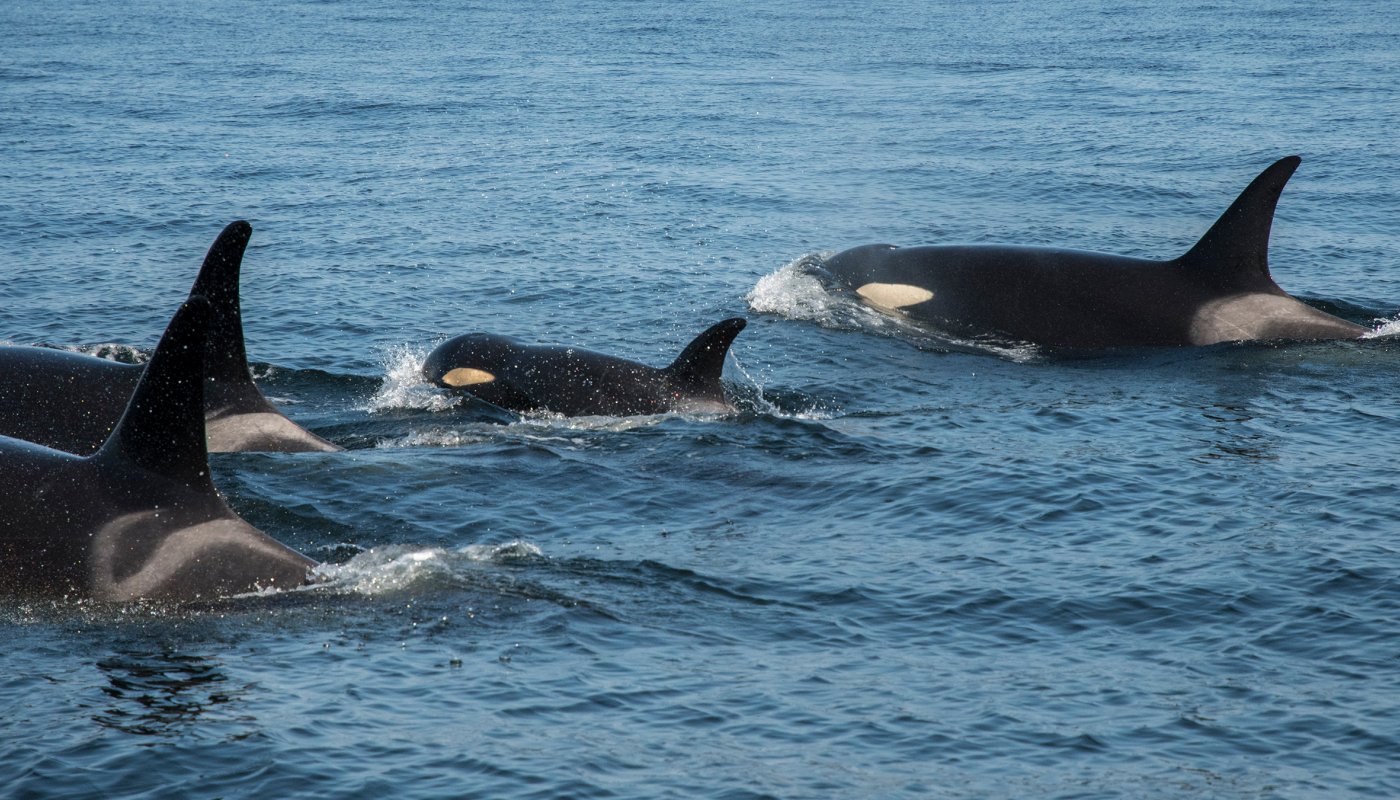Below the surface, the oceans are getting louder. Will this have an impact on our marine animals? A group of researchers gather the facts on how sound is changing our world.
Duarte, C.M, Chapuis, L., Collin, S.P., Costa, D.P., Devassy, R.P., Eguiluz, V.M., Erbe, C., Gordon, T.A.C., Halpern, B.S., Harding, H.R., Havlik, M.N., Meekan, M., Merchant, N.D., Miksis-Olds, J.L., Parsons, M., Predragovic, M., Radford, A.N., Radford, C.A., Simpson, S.D., Slabbekoorn, H., Staaterman, E., Van Opzeeland, I.C., Winderen, J., Zhang, X., and Juanes, F. The soundscape of the Anthropocene ocean (2021). Science, 371 (6529). DOI: 10.1126/science.aba4658
The Soundscape of the Ocean
Sinking under the ocean surface, I always feel a sense of peace. Any noise on the surface, seems to disappear when I dive under the waves and I’m able to be silent with my own thoughts. However, the underwater environment is louder than we think and rapidly changing day by day. This acoustic environment is referred to as the soundscape of the ocean and includes any sounds that form or arise in an immersive environment.
The soundscape of the ocean is extremely important for marine life. Since sound travels so quickly in the ocean, it allows marine animals to communicate with each other across great distances. Communication is significant for mating, hunting, navigating, and foraging, among other activities. Animals also produce sounds with their bodies by slapping their tail or breaching the water, which can help communicate their body size to nearby animals. Sperm whales and other cetaceans use biosonar systems in a technique called echolocation to bounce clicking sounds off objects to fully understand their surroundings.
In a new study, scientists review the literature on soundscapes spanning over the past 40 years to determine the impacts of anthropogenic sounds on marine animals.
A humpback whale and her newborn calf communicate with whale sounds and song in this video.
A New Age of Sounds
Soundscapes include biological sounds, like animal vocalizations, called biophony, and geological sounds, termed geophony. Geophony sounds were previously the loudest and most abundant sound in the ocean. However, since the Industrial Revolution, human produced sounds (anthrophony) are becoming more prevalent. As the Industrial Revolution changed economies and our way of lives with new, more efficient machinery, the impacts of this were often overlooked. With the new changes, came new more frequent sounds.
An increase in human activity also brought declines of sound-producing animals, like whales and fish, due to hunting, fishing, and habitat destruction. When they stopped producing sounds, the soundscape shifted. More boats appeared bringing with them artificial whirring of motors and beeping sonar. New shipping lanes appeared, along with construction, seismic surveys, or development noises shaking the earth. The destructive practice of dredging for seafood, which involves scraping the bottom of the ocean floor with heavy metal, not only destroys everything in its path but generates low-frequency noises that contribute to the ocean soundscape. Climate change has brought an increase in cyclones, heatwaves and storms, creating amplified sounds and physical damage. Even acoustic deterrents were specifically developed technologies to deter marine animals through sound. Anthropogenic sounds continue to pollute the marine environment and have been ever increasing over the past 50 years.
The Effects on Wildlife

Like a dog afraid of fireworks, the changing ocean sounds have a negative impact on marine animals. Some marine mammals, like dolphins, can detect higher frequencies of up to 200 kHz sound (a human can detect only up to 20 kHz). The more sensitive an animals hearing, the more susceptible it is to the impacts of underwater noise. However, it’s not only marine mammals that felt the negative effects of anthrophony, but also invertebrates, fish, marine birds, and reptiles.
Added underwater noise can disturb an animal’s ability to hear and produce physiological and behavioural changes. Anthropogenic noise can mask communication sounds made by marine animals, inhibiting their ability to find each other, communicate, and even avoid predators. There have been instances of disability and death in marine mammals due to ocean noise impacts. Continued exposure to underwater noise can produce stranding, with animals rushing to where they misinterpreted a pod member, resulting in land stranding and death.
Future Sounds
Marine animals can recover or learn to adapt to human induced noise by changing their habitat or learning to avoid certain areas. However, this is not always possible, especially with endangered animals or slow-moving animals which are prone to stay in one living area.
Since noise has been proven to be a stressor to marine animals, it should be included in management, policies and regulations to help keep our oceans healthy in the future. The one good thing about anthropogenic sound is that it disappears once the source is removed. Unlike other types of anthropogenic impacts, like increasing temperatures due to greenhouse gases, when you remove sound, the immediate effects disappear. Incentives for technology can be promoted to develop techniques of reducing anthropogenic noise, for example, reductions on propeller noise from ships. Redirecting shipping lanes away from particularly sensitive areas can also move the sound to less biologically significant areas. Interestingly, there have been some benefits for marine life during the COVID-19 pandemic that show recovery is possible. With the decrease of human activities and therefore anthropogenic sound, marine mammals and sharks have been expanding their territories and movement, which may give us hope for the future.

I have always been happiest in nature – exploring forests, traveling to the ocean, or working with wildlife. After obtaining my MSc in Marine Environmental Management at the University of York, I have worked in conservation and marine science around the world. I have a special affinity for corals, cuttlefish, and cetaceans.
The sea, once it casts its spell, holds one in its net of wonder forever. – Jacques Cousteau

